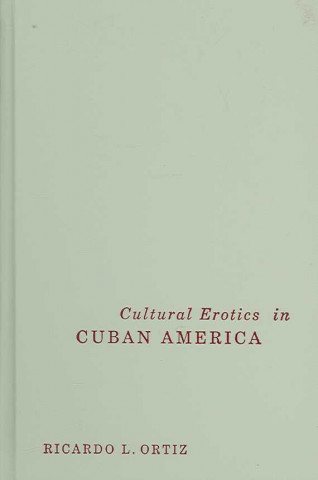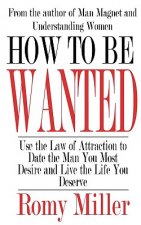
Doručení
Nákupní rádce





Nehodí se? Vůbec nevadí! U nás můžete do 30 dní vrátit
 Dárkový poukaz
V libovolné hodnotě
Dárkový poukaz
V libovolné hodnotě
S dárkovým poukazem nešlápnete vedle. Obdarovaný si za dárkový poukaz může vybrat cokoliv z naší nabídky.
Cultural Erotics in Cuban America
 Angličtina
Angličtina
 227 b
227 b
30 dní na vrácení zboží
Mohlo by vás také zajímat


Miami is widely considered the center of Cuban-American culture. However vital to the diasporic communities' identity, Miami is not the only--or necessarily the most profound--site of cultural production. Looking beyond South Florida, Ricardo L. Ortiz addresses the question of Cuban-American diaspora and cultural identity by exploring the histories and self-sustaining practices of smaller communities in such U.S. cities as Los Angeles, Chicago, and New York. In this wide-ranging work Ortiz argues for the authentically diasporic quality of postrevolutionary, off-island Cuban experience. Highlighting various forms of cultural expression, Cultural Erotics in Cuban America traces underrepresented communities' responses to the threat of cultural disappearance in an overwhelming and hegemonic U.S. culture. Ortiz shows how the work of Cuban-American writers and artists challenges the heteronormativity of both home and host culture. Focusing on artists who have had an ambivalent, indirect, or nonexistent connection to Miami, he presents close readings of such novelists as Reinaldo Arenas, Roberto Fernandez Retamar, Achy Obejas, and Cristina Garcia, the playwright Eduardo Machado, the poet Rafael Campo, and musical performers Albita Rodriguez and Celia Cruz. Ortiz charts the legacies of sexism and homophobia in patriarchal Cuban culture, as well as their influence on Cuban-revolutionary and Cuban-exile ideologies. Moving beyond the outdated cultural terms of the Cold War, he looks forward to envision queer futures for Cuban-American culture free from the ties to restrictive--indeed, oppressive--constructions of nation, place, language, and desire. Ricardo L. Ortiz is associate professor ofEnglish at Georgetown University.
Informace o knize
 Angličtina
Angličtina
Kategorie




 Jak nakupovat
Jak nakupovat



















